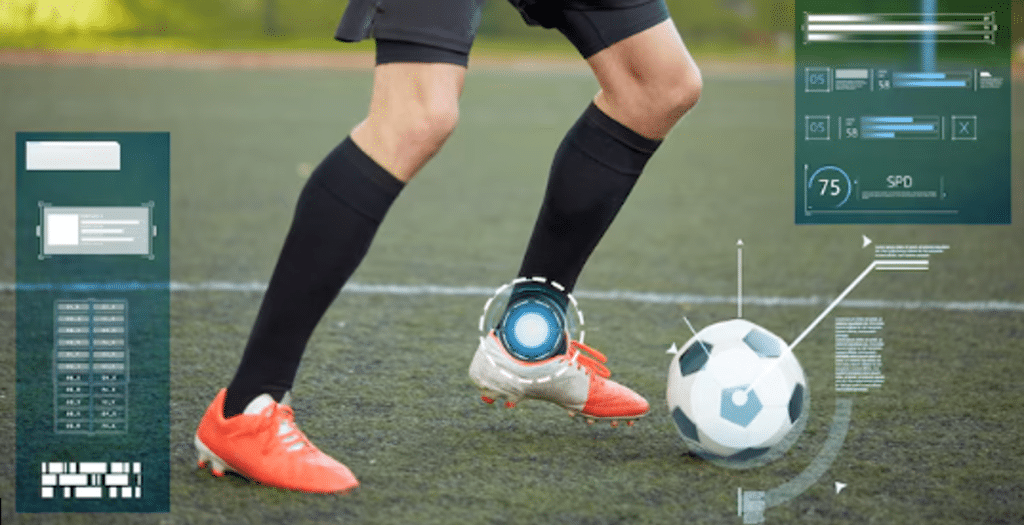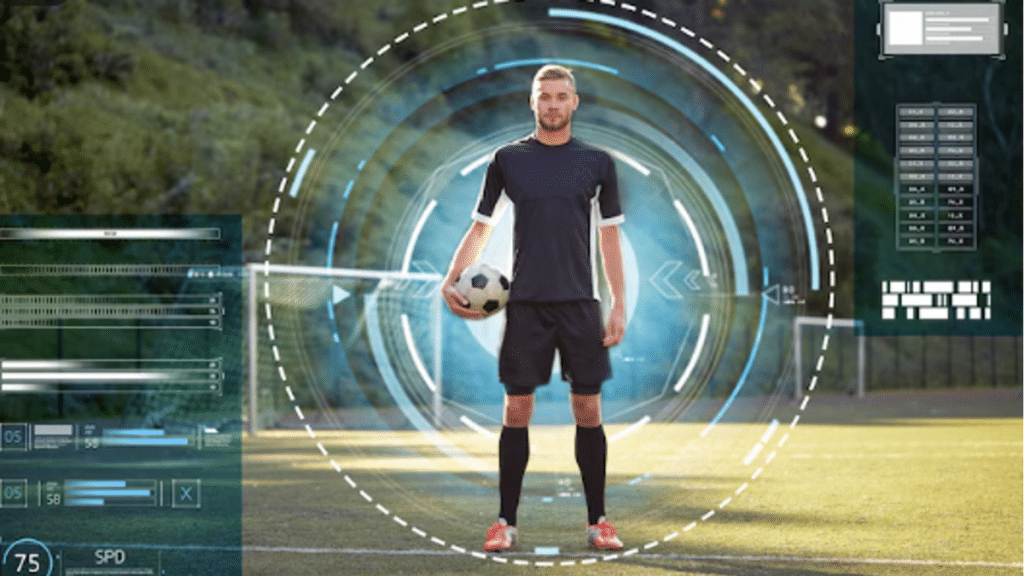Artificial intelligence, through its revolutionary capabilities, is transforming sports across every domain, including football. Strong human evaluation in scouting once dominated the field until new developments associated with data analysis and algorithm-based techniques emerged. Clubs analyze extensive information databases while performing precise identification of prospective talents significantly faster than before. AI technology goes beyond performing better scouting, since it undertakes a complete restructuring of the sports science method.
The Role of AI in Modern Scouting
Scouting has evolved beyond match-observed skills because modern systems track and process every player’s movement, including kicks, passes, and sprints. Artificial intelligence systems analyze hundreds of matches using advanced statistics, which people cannot detect without specialized technology. The betting market has already implemented such technology in mel bet, as deep player behavioral analysis enhances match prediction accuracy by detecting particular patterns that reveal player movement, their actions under stressful situations, and their choice-making processes on the field. The system operates at a speed that exceeds human observation, assessing thousands of hours of video content.
AI provides football clubs with a different perspective when observing their games. The process involves discovering talent at an early stage, extending until before professional sports candidacy. AI analysis extends beyond current performance evaluations, as it can predict future greatness in players. Artificial intelligence revolutionizes football scouting by providing both speed and precision at its best. Each player has become a collectible data point because this information exposes scouting opportunities to professionals that they would have missed in previous times.
Benefits of AI in Talent Identification
Football talent scouting operates more effectively through artificial intelligence, resulting in a faster and more efficient system for identifying promising athletes. Through its analysis of extensive datasets, AI technology is an effective tool for identifying talents that potential clubs have overlooked. Artificial intelligence transformation of talent identification achieves these main goals in the process:
- Artificial intelligence systems identify promising young players during their preeminence period when they have not yet entered public awareness.
- AI systems analyze the footprints of various player skills, including physical statistics and game intelligence, to produce complete multidimensional profiles of athletes.
- The system provides more than just current performance data because it utilizes predictive capabilities to show how athletes will ultimately succeed, enabling clubs to identify future star athletes.
Clubs benefit twofold through this approach, as they tap into an enormous talent pool while making more informed decisions about their roster composition. Acquiring emerging talents who have not yet reached their full potential allows clubs to maintain an advantage over their competitors.
AI-Driven Data Analysis for Scouting
Scouting with AI involves multiple video analysis capabilities, resulting in useful informational outputs. Modern clubs utilize massive databases to monitor a range of player information, from movements to touches and passes, while tracking heart rate statistics. Live data collection enables scouts to gain comprehensive player assessments through insights that surpass what can be observed during matches. Through AI technology, teams receive both updates on their players’ current performance and forecasts of upcoming match results. Facebook MelBet has become a platform for experts to demonstrate how technological innovations enhance recruiting abilities, providing clubs with strategic advantages. Professional analysis relies on data beyond numbers because these statistics enable forecasting a player’s career trajectory.
Analyzing Player Statistics
AI has transformed player statistical analysis into an advanced form, which now drives clubs to base their scouting strategies on factual data rather than traditional observational methods. Before AI took over the role of scouts, human observers relied on instinct and physical observation, but AI now converts performance into intricate numerical data. The combination of Artificial Intelligence generates a complete understanding of a football player’s skills, including pass precision and sprint performance. Three different matches help AI construct detailed player profiles that describe abilities beyond what human scouts can observe in real-time.
A data-driven method provides an in-depth understanding of each player’s abilities. Through AI algorithms, players can determine how their skill level differs when performing in hot weather or against challenging opponents in their position. The scouting tool reveals hidden characteristics regarding player stability, coping abilities, and flexibility that standard evaluation techniques cannot detect.

Predicting Long-Term Potential
Current talent searches using AI have evolved into an industry-advancing tool, demonstrating the capability for forecasting future success. AI analyzes historical patterns, current results, and mental elements to develop predictions regarding player development trajectories. The extended vision represents soccer clubs’ vital resource to identify future talents. League clubs must consider players who demonstrate current performance capabilities, as well as those who have the potential to develop into future talent.
- AI models evaluate an athlete’s body resilience to calculate how professional football will affect their career performance.
- AI measures a player’s psychological traits by analyzing their performance data under pressure to assess their ability to manage career demands.
- AI systems determine the extent to which a player will function effectively in multiple team systems and adjust to their structures and plans.
Clubs evaluate these performance attributes to achieve a more strategic assessment of player growth. Through extended predictions, AI demonstrates how a player will perform in both short-term matches and long-term player careers, both on and off the field.
Overcoming the Challenges of AI Integration
Using AI technology for football scouting requires overcoming specific challenges. Wrong predictions occur when data quality is the biggest hindrance to accurate modeling. AI systems require continuous updates because the game of football advances at high speed. AI presents difficulties because football scouts and coaches need to merge their personal analysis understanding with sophisticated data received from innovative analytics systems. The success of AI football scouting depends on streamlining its integration, as it needs to realize its potential fully. Substantial technological investments with qualified personnel represent two major requirements for executing AI systems. Smaller clubs often find it challenging to match the big teams, since significant club investments in AI enable them to use the technology at maximum scale. After addressing initial system challenges, AI can prepare more effective scouting operations with improved precision and swifter assessments, which facilitate a broader talent selection to create superior choices within player identification.
| Challenge | Solution | Impact on Scouting |
| Inaccurate or incomplete data | Regular data quality checks | More reliable predictions |
| Adapting human intuition to AI | Training staff on data usage | Better integration with AI insights |
| High cost of technology and staff | Outsourcing or scaling gradually | Equal opportunities for smaller clubs |
How AI Enhances Scouting Efficiency
The scouting process is optimized through automated data analysis, enabling scouts to focus on advanced decision-making tasks. The combination of artificial intelligence helps teams make instant decisions by evaluating multiple kinds of data points, including player statistics, medical reports, and psychological evaluations. This method makes the evaluation process for potential players much more efficient. Each player requires only a fraction of the previous footage weight to be evaluated by scouts. Through AI, players’ necessary sequences become visible, which results in quicker identification of talented performers.
Through real-time player analysis, AI generates strategic adjustments that clubs can utilize during the mid-season. Quick feedback helps scout teams strengthen their operations to avoid missing promising new talent. Through scouting technology, players can make better-informed decisions rapidly with enhanced assurance, making it possible to establish an information-based soccer environment.
The Role of AI in Scouting Global Talent
AI technologies enable organizations worldwide to revolutionize their personnel recruitment efforts effectively. Before modern times, athletic scouting activities remained confined to local and regional athletic events. AI technology allows clubs to evaluate players worldwide. Scouting technology enables scouts to study developing athletes from underrepresented regions and countries that were previously overlooked. Through this advancement, club access to wider player selection ensures they always obtain the potential football talent that will emerge next.
After exploring players from alternative minor league options or youth systems, clubs can now identify capability through AI. AI systems that collect worldwide data help clubs track player performance development, allowing them to base their selections on more sophisticated information. The worldwide approach ensures football talent is developed throughout all leagues beyond the major leagues.
The Future of AI in Football Scouting
The application of AI for football scouting operations is expected to experience expanding usage in the coming years. The technology’s advancements will increase accuracy when predicting sports’ potential and performance abilities. Artificial Intelligence holds the potential to determine sports talent and simultaneously help build up the next stage of the game by creating personalized training plans. The coming age will provide enhanced scouting precision, enabling clubs to obtain promising young talents at an earlier stage. Every club’s strategic plan will embrace AI as a fundamental component that exceeds its status as a tool.
